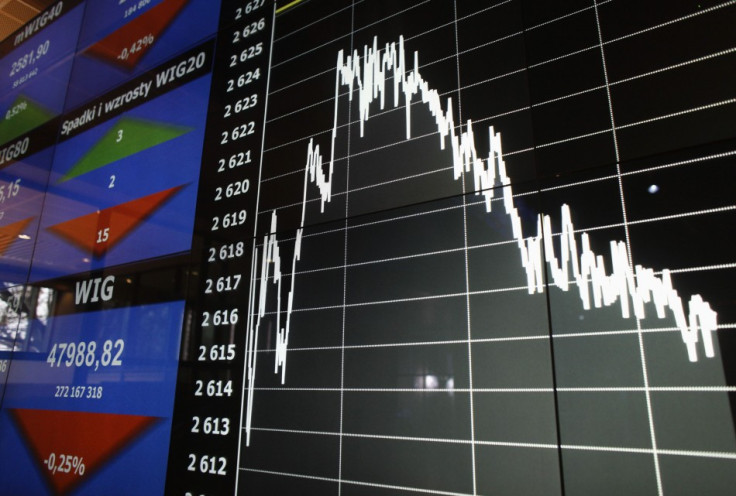European Stocks Weak on US Sequester and China PMI

European stocks fell in the opening minutes of trade as investors considered the "sequester" talks in US and disappointing China manufacturing PMI.
The FTSEurofirst 300 index, tracking the region's blue-chip stocks, eased 0.1 percent to 1,170.13.
The UK's FTSE 100 and Germany's DAX fell 0.1 percent each. Spain's IBEX and France's CAC-40 both fell 0.3 percent.
Italy's FTSE MIB dropped 0.5 percent as well.
The single currency showed modest strength against the dollar, trading at about $1.30.
Investors are keeping a close watch on the spending cuts talks in Washington with a final deal looking increasingly doubtful. Known as the "sequester", the massive budget cuts which, it is feared, will hurt the global economy, are set to come into effect on 1 March.
The International Monetary Fund has warned of the global significance of the spending cuts, adding that it would probably slash 0.5 percent from its current US growth forecast of 2 percent for 2013. Obama himself has warned lawmakers that the "sequester" could damage the economy and hurt the middle-class.
European traders are also awaiting the eurozone Purchasing Managers Index (PMI) manufacturing data, set for release earlier in the day. Other data expected during the day includes eurozone inflation and employment rates.
Asian markets had ended mixed earlier, after twin sets of Chinese manufacturing data indicated slower growth in February.
Japan's benchmark Nikkei index gained 0.4 percent to 11606.38 while South Korea's KOSPI added 1.12 percent to 2026.49.
In China, the Shanghai Composite Index eased 0.26 percent to 2359.51. Hong Kong's Hang Seng was down 0.43 percent to 22921.28 towards close. Australia's S&P/ASX 200 fell 0.35 percent to 5086.10.
Investor sentiment across the region dampened after official and private sector data showed that China's manufacturing sector grew at a slower pace in February. Data released by the National Bureau of Statistics and the China Federation of Logistics and Purchasing showed that the official PMI fell to 50.1 in February, down 0.3 points from the previous month.
HSBC's final reading of China's PMI also disappointed, with the index dropping to 50.4 from the 52.3 reading recorded in January.
The data reiterates the issues that China's incoming government will face once it takes office this month. It also places pressure on the People's Bank of China (PBOC) to refrain from tightening the monetary policy, despite inflationary concerns.
But analysts point out that the data does not point to a weakness in China's overall outlook as the supportive policies and improving global conditions could aid growth.
"The above-50 reading of the PMI still indicates that the economy is on an expansion mode," said China economists at ANZ after the official PMI release.
"In our view, even though headwinds remain, China's GDP growth will still likely come in around 8 percent in Q1, supported by faster investment growth in western and central Chinese provinces due to the renewed urbanisation drive".
Japanese indicators released during the day also remained weak. Consumer prices in the world's third largest economy fell for the third succesive month in January, underlining the country's stubborn deflation levels.
The weak figures come after the Bank of Japan doubled its inflation targets in January and took up open-ended asset purchase programmes.
© Copyright IBTimes 2025. All rights reserved.





















